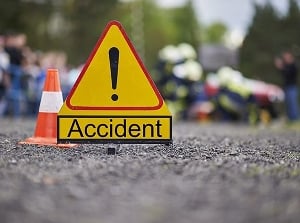The Driver and Vehicle Licensing Authority (DVLA) finds itself embroiled in a controversy surrounding the alleged illegal transfer of its former regional office located at 37 in Accra. Julius Neequaye Kotey, the DVLA’s Chief Executive, has publicly addressed the issue, confirming a personal visit to the disputed site alongside the DVLA Board Chairman to assess the situation firsthand. The visit unearthed troubling revelations, including the alleged lease of portions of the property to a private company and the purported sale of other sections for a staggering $3 million. Adding to the complexity of the situation is the discovery that the land designated as a replacement for the 37 office is not registered under the DVLA’s ownership, but rather under the name of a private developer. These revelations have sparked public outcry and intensified demands for a thorough investigation into the circumstances surrounding the alleged transactions.
The core of the controversy lies in the alleged illicit transfer of public land to private entities, raising serious concerns about the integrity of asset management within state institutions. The DVLA’s case is not an isolated incident but rather adds to a growing list of similar allegations involving backdoor land deals that have plagued public agencies. These alleged transactions often occur under questionable circumstances, raising red flags about transparency and accountability in the management of public resources. The potential loss of valuable state assets through such dubious dealings represents a significant threat to the public interest and underscores the urgent need for robust mechanisms to safeguard public property.
The DVLA’s Chief Executive, Mr. Kotey, has expressed his commitment to pursuing legal avenues to reclaim the disputed land. His public statement reflects a determination to address the issue head-on and signals the DVLA’s intention to cooperate fully with any investigations. The focus now shifts to the relevant authorities, who are under immense pressure to conduct a comprehensive and impartial inquiry into the matter. The investigation must not only unravel the complexities of the alleged transactions but also identify any individuals or entities responsible for potential wrongdoing.
The allegations surrounding the DVLA land deal underscore a broader systemic issue of land management within the public sector. The lack of transparency and accountability in land transactions creates opportunities for exploitation and raises concerns about potential conflicts of interest. Strengthening regulatory frameworks and implementing stricter oversight mechanisms are crucial steps in preventing such occurrences in the future. Protecting public assets requires a concerted effort to ensure that all land transactions involving state institutions are conducted with the utmost transparency and adhere to established legal procedures.
The DVLA case serves as a stark reminder of the vulnerabilities of public institutions to land-grabbing schemes and the urgent need for proactive measures to safeguard public resources. It underscores the importance of robust internal controls, rigorous due diligence processes, and independent oversight to prevent the illicit transfer of public land. The outcome of the investigation into the DVLA land deal will be closely watched by the public and will serve as a litmus test for the government’s commitment to combating corruption and protecting public assets.
The controversy surrounding the DVLA’s former regional office highlights the critical need for comprehensive land reforms and strengthened institutional mechanisms to protect public property. Beyond investigating the specific allegations in this case, the government must address the underlying systemic issues that contribute to such occurrences. This includes enhancing transparency in land transactions, strengthening accountability mechanisms, and empowering oversight bodies to effectively monitor and regulate land dealings involving public institutions. Only through a concerted effort to address these systemic challenges can public trust be restored and the integrity of public asset management be ensured.













